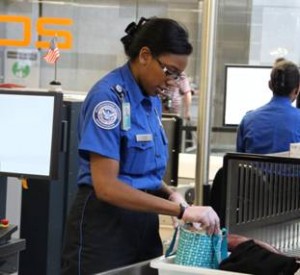Starting with tickets purchased July 21, air travelers will be paying higher security taxes when they fly.
But the money won’t necessarily go to improve airport security.
The government is hiking the mandatory security fee, first put in place after the Sept. 11, 2001, terrorist attacks, to fund the Transportation Security Administration.
The fee originally had been pegged at $2.50 per leg of a connecting flight, capped at $5 per one-way trip. The new fee will be a flat $5.60 per one-way trip — that is, if you take direct flights or have layovers on domestic flights no longer than four hours.
Under the new rules, if you have a layover of more than four hours on a domestic flight (or 12 hours in a domestic airport while traveling to an international destination), that will be now be considered a separate leg of your trip, and you’ll be hit with an extra $5.60 fee.
Fly round-trip with a layover each way of more than four hours in Chicago, Las Vegas or Dallas (not that unusual with some budget carriers) and the bill for TSA fees, to be collected and forwarded by your airline, would be $22.40.
“It’s a huge money grab and we’re against it,” said Sharon Pinkerton, senior vice president at Airlines for America, the trade group representing most large airlines.
Passengers will end up paying over a billion dollars more per year in added fees, said Pinkerton, “and the icing on the cake for air passengers is that most of those fees aren’t going back into the TSA program to improve security.”
Most of the money from increased fees, TSA officials point out, will be going to help the government work off the deficit as mandated by Congress in the Bipartisan Budget Act of 2013.
“In accordance with Federal Law, the revenue generated from the security fee will be deposited in the general fund of the Treasury. The revenue is to be used to offset TSA costs for providing civil aviation security services, after stipulated amounts are applied to reduction of the federal deficit,” TSA said in a statement.
While all air travelers will be subject to the new rules, those most likely to end up paying more are those who book round-trips with long stopovers for business meetings or touring in multiple cities and those with journeys that start at small airports and require one or more connecting flights with layovers of more than four hours.
“With fares going up 5 to 6 percent and airline fees going up, this latest tax will probably whittle away demand for air travel,” said George Hobica, founder of AirfareWatchdog.com. “People hate the TSA and they are going to hate paying more for it.”
(My story about the TSA fee hike first appeared on NBC News Travel).
Thanks for visiting Stuck at the Airport. Subscribe to get daily travel tidbits. And follow me on Twitter at @hbaskas and Instagram.
